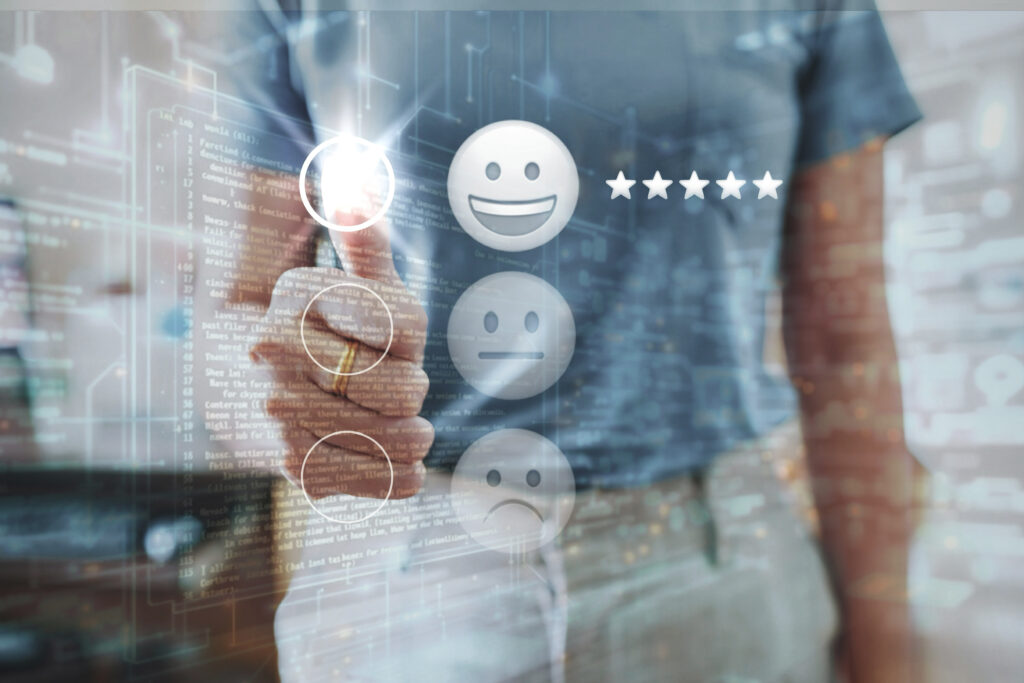Data breaches are terrifying — most of all, perhaps, because they do happen — despite the best efforts of cybersecurity professionals and other experts.
Because data is one of today’s most valuable commodities, companies have a responsibility to protect the personal information of their customers and employees. Failure to do so can have disastrous consequences for both the company and the affected individuals.
Simply “hoping for the best” isn’t an option. Here’s a closer look at how companies can care for their consumers’ data privacy and protection in a world of data insecurity.

How to protect your consumers’ data
1. Develop a Privacy Policy
The first step in protecting consumer data is to develop a privacy policy—like this great example! This document outlines the company’s data collection, storage, and sharing practices. It should be written in clear, easy-to-understand language and be easily accessible to customers.
A good privacy policy will help customers understand how their data is used and what they can expect from the company.
2. Train Employees
Employees play a critical role in protecting customer data. Companies should provide regular training on data privacy and protection for all employees, not just those in IT.
Training should cover topics such as password security, phishing scams, and how to handle customer data. Employees should also be aware of the company’s privacy policy and how it affects their job duties.
3. Limit Data Collection
It’s a good practice only to collect the data you need to provide your products or services. Unnecessary data collection increases the risk of a data breach. Transparency is also vital for customers. Make it standard to tell your customers how and why you’re collecting their data.
Customers who don’t understand why their data is being collected may be less likely to provide it, which makes personalization and customized experiences nearly impossible.
4. Implement Data Security Measures
Data security measures are critical in protecting customer data. These include things like encryption, firewalls, and anti-virus software, but “more stuff” is not enough if you don’t have supporting processes and testing in place.
Your organization should regularly conduct security audits to identify and address vulnerabilities. You can’t be sure of your security without knowing if your systems are working correctly — and neither can your customers.
5. Respond to Data Breaches Quickly
It’s not the best possible outcome by a long shot, but data breaches can occur, despite the best prevention efforts. How you respond is not only critical to customer trust and loyalty but also to the safety of your data!
Rather than waiting until it’s too late, plan now for how to respond quickly to data breaches. This plan should include steps such as notifying affected individuals, investigating the breach, and taking steps to prevent future violations.
6. Use Third-Party Vendors Carefully
Many companies rely on third-party vendors for various services. When using third-party vendors, companies should ensure that the vendors have robust data privacy and protection practices.
Make sure you have a contract outlining the vendor’s responsibilities regarding data privacy and protection clearly for you and your customers.
Learn
8 Critical Data Security Practices for Business!
7. Compliance with Regulations
There are numerous data privacy and protection regulations such as GDPR, CCPA, HIPAA, and others that your organization should comply with based on your industry. The risk of not complying can result in significant financial penalties and damage your company’s reputation – and nobody wants that!
Stay current on the latest regulations for your industry, your location, and more — and ensure you are in compliance.
How can your industry protect customer data and privacy?
Let’s take a look at how companies in various industries can care for consumers’ data privacy and protection.
1. Financial Industry
Financial companies collect a large amount of personal data from their customers, including Social Security numbers, bank account information, and credit card numbers.
That’s a lot of sensitive information to protect!
They are also subject to various regulations, such as the Gramm-Leach-Bliley Act (GLBA) and the Payment Card Industry Data Security Standard (PCI DSS).
Here are some steps financial companies can take to protect their customers’ data:
- Use multi-factor authentication to protect customer accounts.
- Encrypt all data in transit and at rest.
- Conduct regular security audits to identify and address vulnerabilities.
- Ensure that all third-party vendors have robust data privacy and protection practices in place.
- Comply with regulations such as GLBA and PCI DSS.
2. Healthcare Industry
The healthcare industry is responsible for protecting some of the most sensitive personal information, including medical history, prescription data, and insurance information. Like the financial industry, healthcare companies are subject to various regulations—such as HIPAA—which require strict data privacy and protection practices.
Here are some steps healthcare companies can take to protect their patients’ data:
- Educate patients on data security protocols on patient access systems.
- Use systems and integration with checks and encryptions built in.
- Conduct regular security audits to identify and address application, CRM, and other system vulnerabilities.
- Ensure that all third-party vendors have powerful data privacy and protection practices in place and ask for certifications.
- Comply with regulations such as HIPAA.
3. HR Industry
HR companies collect a large amount of personal data from employees, including Social Security numbers, bank account information, and health insurance information. HR companies are also subject to various regulations, such as the Fair Credit Reporting Act (FCRA) and the General Data Protection Regulation (GDPR).
It should be noted that GDPR applies to companies that have some part of their operation occurring in the EU.
Here are some steps HR companies can take to protect employees’ data:
- Use strong access and password controls to limit access to employee data.
- Maintain security and protection protocols on employee records.
- Conduct regular security audits to identify and address vulnerabilities.
- Conduct onboarding and continuous training on data security with employees.
- Comply with regulations such as FCRA and GDPR.
4. SaaS Industry
SaaS companies provide software services over the internet—like Sogolytics—and they collect a large amount of personal data from their customers. SaaS companies are also subject to various regulations such as GDPR and CCPA.
They also have the added expectation, with their association with advanced technologies, to take data security extremely seriously.
Here are some steps SaaS companies can take to protect their customers’ data:
- Monitor user-level data security for compliance with internal and external security standards.
- Have a security checklist and maintain those protocols on crucial cybersecurity aspects.
- Comply with audits and maintain certification regularly.
- Encrypt all transmission data from end to end.
- Comply with regulations such as GDPR and CCPA.
Many of these best practices can be generalized, making them applicable to all industries. There are special circumstances—like GDPR’s connection to the EU—that organizations should be aware of and always adhere to.
No matter what, though, data security is something they — and we — must all take seriously.
Want to keep your customer data secure with top-rated security?
Now is the best time to get feedback from your customers with powerful analytics to drive action. Don’t know where to start? We’re here to support your efforts!














